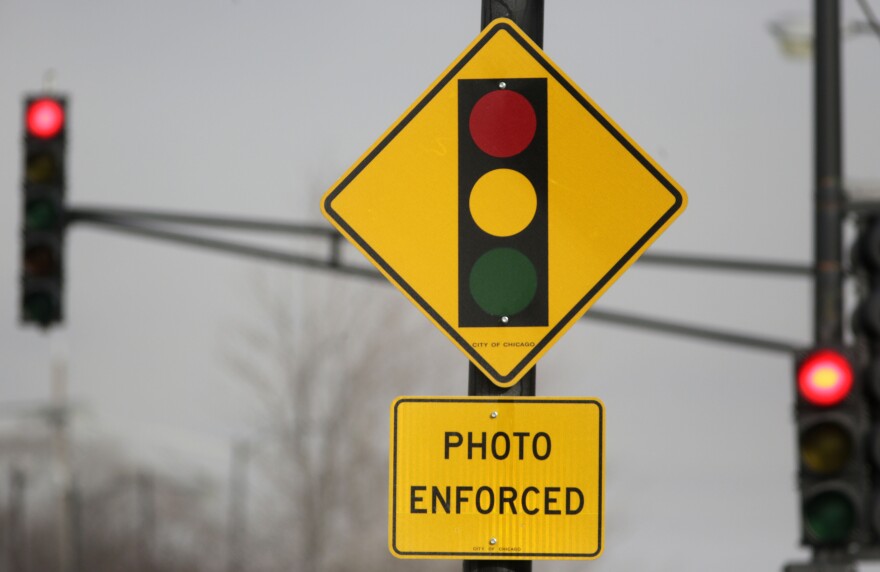WESA's local, independent journalism is only possible because of financial support from readers like you. Please support WESA by making a donation during our fall fundraising campaign.
Pittsburgh is one step closer to deploying automated red-light cameras at dangerous intersections. City Council voted Tuesday to approve changes to the city code that would allow use of the technology.
The bill is part of the city’s “Vision Zero” initiative to eliminate traffic fatalities, and was introduced by Councilor Erika Strassburger and co-sponsored by Councilor Barb Warwick. It received a preliminary approval last week, and passed in council unanimously on Tuesday.
The automatic cameras would document traffic violations, like drivers who run red lights, at the intersections they are deployed. City police would then validate the recordings, and fine risky drivers by mailing citations to the address where the vehicle is registered.
“This is about safety,” said Strassburger after the vote. “This is about keeping people safe on our streets, whether they're vulnerable users like children or older adults or folks in wheelchairs or any of us kind of just trying to get from A to B safely and alive.”
Strassburger said that the city would have to appropriate money to install the cameras in its 2025 budget, which must be finalized by the end of the year. Strassburger said the city would begin inviting proposals for that work once the budget has passed, if not earlier.
Some practical questions about the cameras — like how sensitive they will be and how they will handle special cases like funeral processions — will be answered once the city chooses a vendor, Strassburger said. She would like to see the cameras on the streets by sometime next year.
Strassburger estimates that it would initially cost roughly $200,000 to install cameras at a handful of spots. Those would be selected from a list of “high-priority intersections,” where fatal crashes and police calls happen most often. She said she hoped the city would emphasize placing the cameras at “easy-to-install” intersections, where features like left-turn green arrows mean violations are easier to prove.
“I think it's going to be a decision point primarily around public safety and where we'll have the greatest amount of success,” she said.
Fines for offenses captured by the cameras are capped at $100, and proceeds would be sent to PennDOT’s Motor License Fund. Offenders will have 30 days to pay the fine or appeal.
The city must allow for a 60-day warning period upon the installation of the first automated red light, and 30-day warnings for each light after that. Intersections with red-light cameras will have signage posted to alert drivers about the technology.
Councilor Theresa Kail-Smith said she was glad to see something being done about dangerous driving in the city.
“There are so many issues with traffic across the city of Pittsburgh,” Kail-Smith said. “Enforcement is the only thing I think that's helping, because we have speed bumps all over the city now, and that's not stopping people…People are desperately looking for some relief.”
But Strassburger said that while she is excited that the bill has progressed, “I'm not going to celebrate until we actually start to see some reductions of red-light running, until we see the cameras actually working. And until we experience fewer crashes and fewer close calls and safer streets overall.”
Support WESA
WESA keeps you informed — and an informed community is more likely to vote, take care of local institutions, and work together to help others. We highlight solutions to our community’s challenges and clear a path for our neighbors to thrive.
The best local news has a positive impact on the people who use it. That’s what we do here at WESA. We aim to help our community through trusted news. Your gift supports the information everyone in Pittsburgh needs. One story can change someone’s life. You can make that story possible.
Your contribution protects a free press here in Pittsburgh. Please make sure our region can depend on news that’s based on facts.
Please make a one-time gift or consider increasing your monthly support by $2 or $3.














